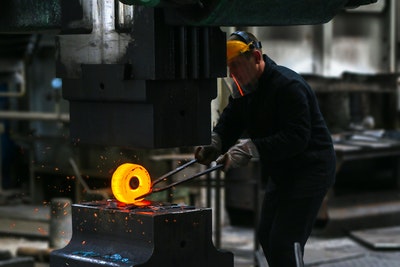The Human Component: Making Great Supply Chain Relationships

There are many reasons we have to maintain a great relationship within a supply chain.
It makes our day-to-day dealings better, but it can also strengthen our position, not to mention improve our efficacy.
Every supplier is different, therefore, developing strong relationships can be difficult.
Let’s show you some simple ways to develop a strong relationship, regardless of your position in the supply chain.
Be Aware of Cultural Differences
If you are relying on a trucking company to get your goods to its location on time, and they are on the other side of the world, or the driver is from a different culture, it’s important to recognize differences, and you should take the extra step to make their life easier.
It’s important to build a good rapport that solidifies your relationship. Being aware of cultural differences provides a solid foundation for solid business dealings. For example, if you are working with Chinese businesses, their culture focuses on building personal relationships before business ones.
Setting the Right Tone
Those first impressions are critical. You should start your relationship in the right way.
This means you should take the opportunity to hit the ground running with that first phone call or email. When you make a telephone call, think about the impact of how you sound. Your tone of voice plays a crucial part in making a valid first impression.
And changing your speaking patterns, ensuring you talk slowly, and reducing any sense of aggression are crucial things, especially if you are under a tight timescale and this is the first time you’ve spoken to them.
Transparency and Communication
Communication is the foundation of all effective working relationships. It creates transparency on both sides of the process. Inevitably, there are moments of human error, such as missing orders or an incorrect inventory count, but this is where communication should be established.
Not only this, but an effective structure to facilitate solid communication allows internal and external teams to share information to make the conversation more even. Businesses can gain a reputation for being too tough, and even the most well-established businesses can turn this around by improving communication.
Understanding Your Suppliers
It sounds obvious, but you will work better with a supplier when you understand them. When you develop a better understanding, you will work through bumps in the road and develop a sturdier relationship.
To improve your understanding, look at your supplier’s position, and how they work to achieve their mission. Their core values will help you understand them better and you can work to be on the same page as them.
You must also remember that people within your business should be on the same page as the supplier. This is something that we can neglect, but this is where transparency within our business is pivotal.
A good working relationship in a supply chain improves things in many ways. It bolsters its efficiency, makes for an effective business, but it will reinforce the idea that relationships should be human, not digital. We can greatly underestimate this in the modern day.




